Onions are a wonderfully versatile vegetable, both in the kitchen and in the garden. From green onions to storage onions, these edible alliums add flavor to almost any savory dish, making them a culinary staple.
Less well known, perhaps, is their usefulness in the garden for general pest protection. With their strong scent, onions deter many common garden pests, and they can even help with the flavor enhancement of some vegetables. Other plants offer similar benefits to the onions. However, not all plants play well together, so it is important to know good companion plants for onions from bad ones.
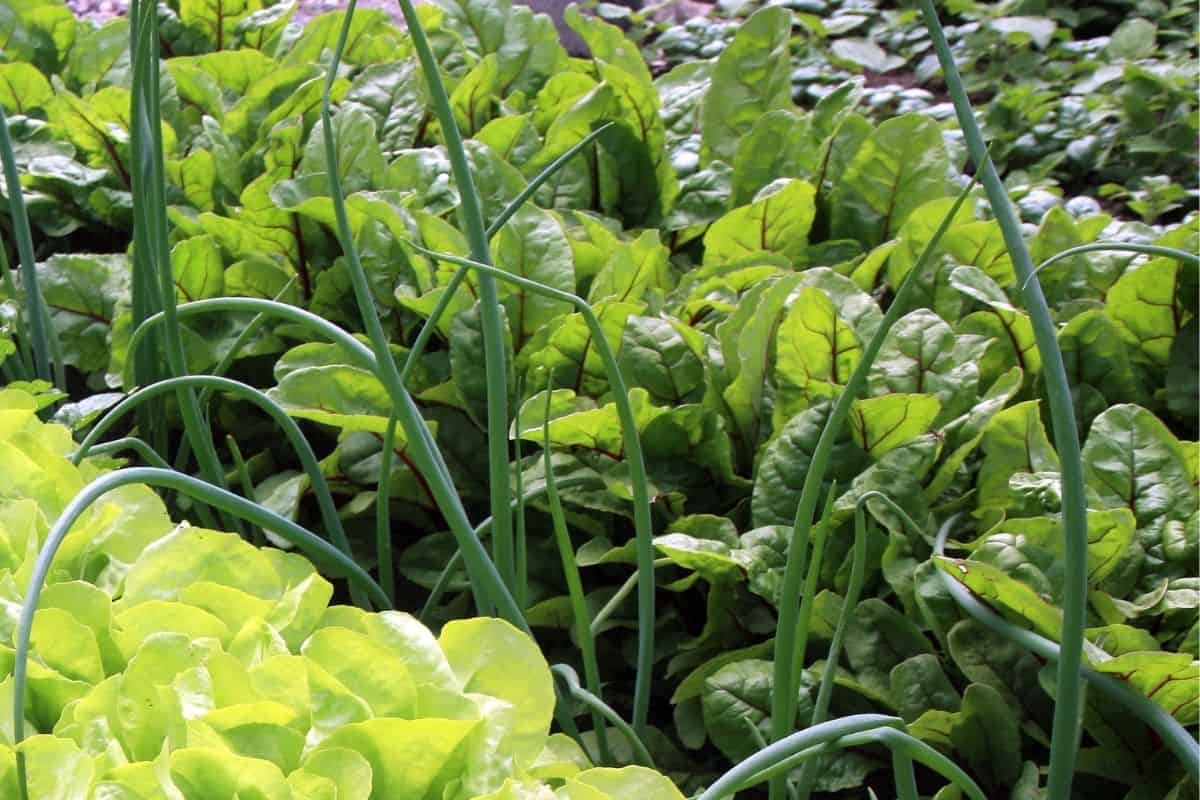
What is companion planting?
If you haven’t heard of companion planting before, this may seem like a strange concept at first glance. However, it makes a lot of sense, as plants do communicate with one another, sharing nutrients and providing shade, support, and weed suppression, among other benefits. Plants compete for resources, certainly, but they have also adapted to work around and even with each other, in the wild as well as the vegetable garden.
Companion planting, then, essentially involves mimicking natural systems by planting mutually beneficial plants next to each other. This means interplanting vegetables, herbs, fruits, and flowers based on compatibility and offered benefits.
When first learning about companion planting, it helps to focus on one type of plant at a time to avoid overwhelm, since there are so many possible plant combinations. Onions, with their great versatility, are an excellent place to start. Green or spring onions especially are easy to grow and take up little space, making them perfect for tucking in around other plants in the garden.
Why try companion planting?
Companion planting offers a wide range of benefits. These include enhancing growth, boosting production, deterring pests, attracting pollinators, improving flavor, and preventing disease.
Plus, interplanting often allows you to grow more plants in less space, and planting companion flowers among vegetables adds beauty to the vegetable garden. Knowing all this, the question soon becomes, Why not try companion planting?
Best Companion Plants for Onions
While some plants improve the growth of onions, others benefit from growing near onions. This list will help you learn which plants will make the best companions for the onions in your garden.
1. Beets
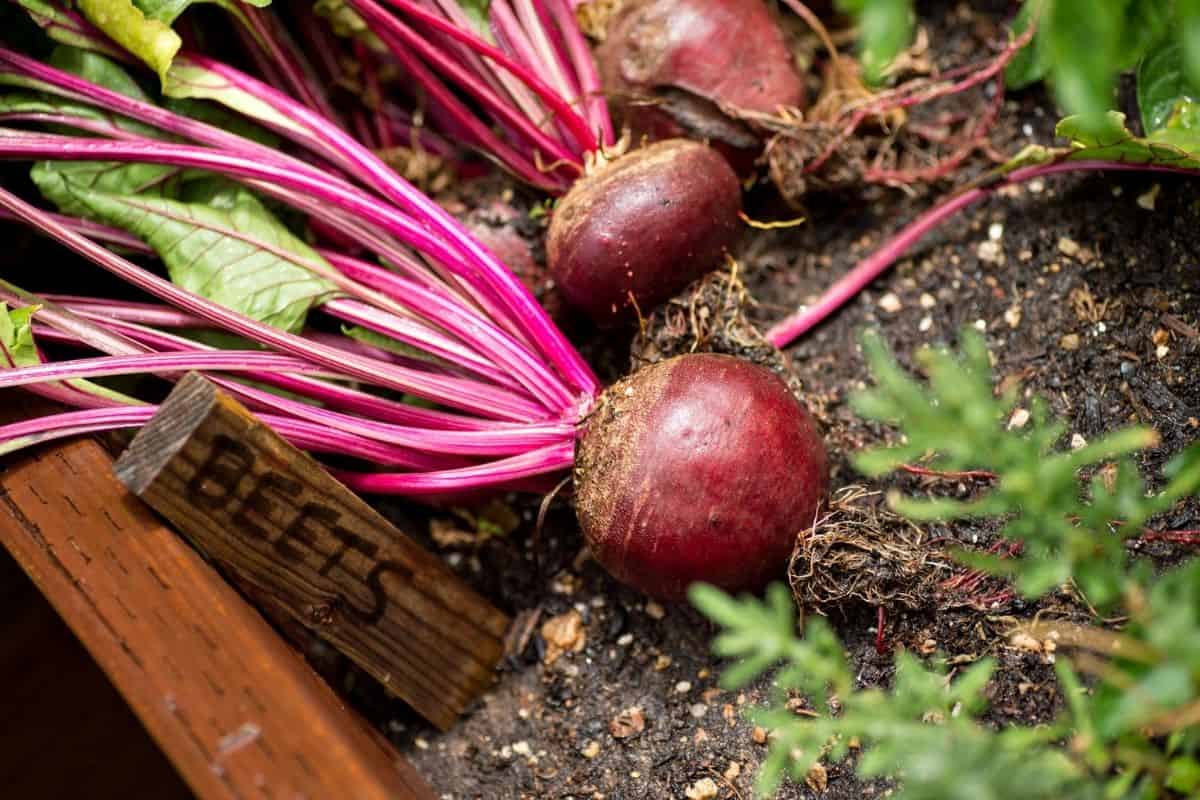
When planted together, onions benefit beets by deterring flea beetles and aphids, as well as even larger pests like deer and rabbits.
2. Brassicas
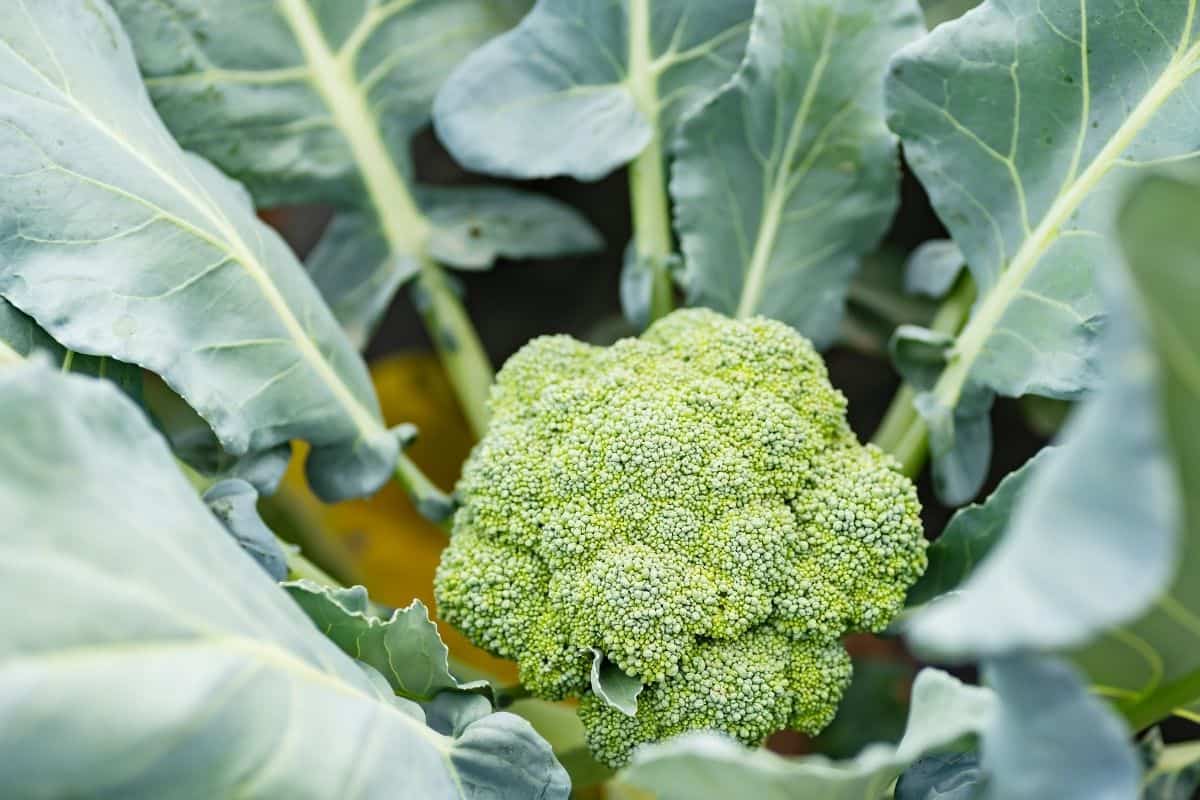
In addition to flea beetles, onions also repel cabbage worms, cabbage maggots, cabbage moths, and cabbage loopers. These terrible little pests feed on plants in the brassica family, including cabbage, broccoli, kale, cauliflower, kohlrabi, and Brussels sprouts.
3. Carrots
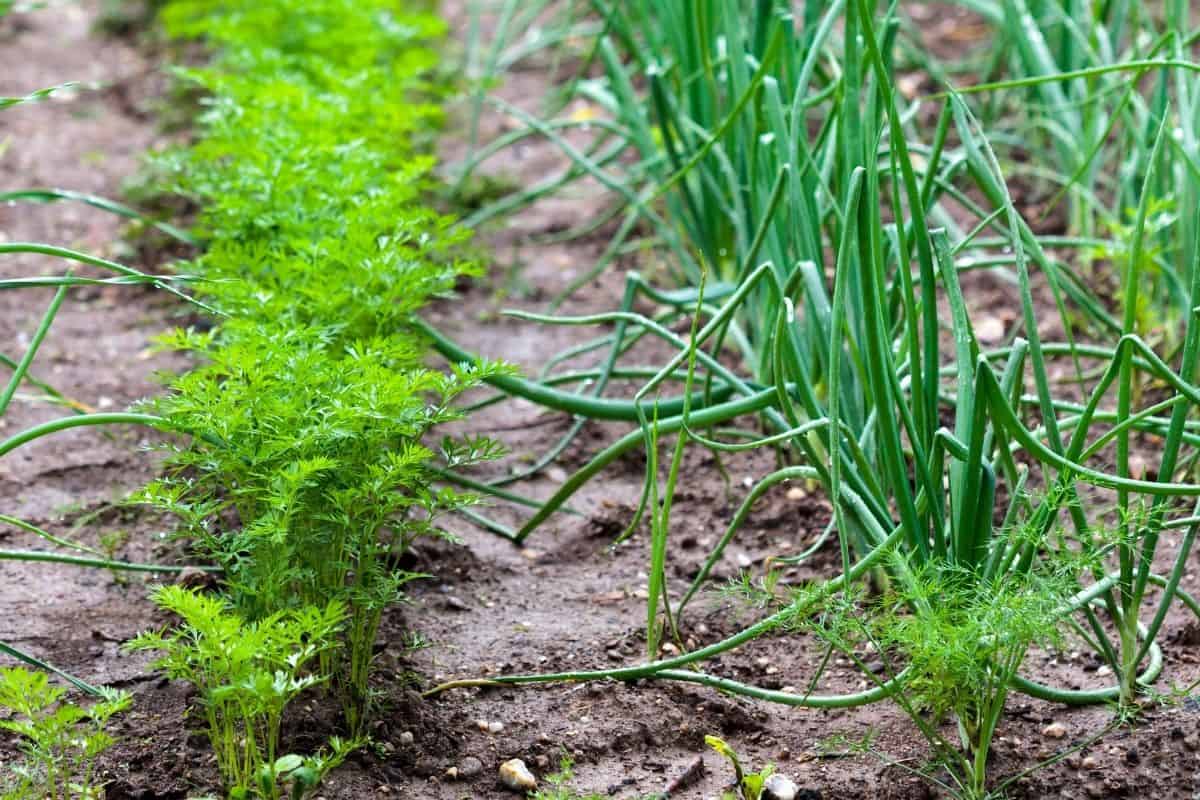
Interplant onions with carrots to help protect your crop from the dreaded carrot fly. Because these two plants take up water and nutrients from different levels of soil, they don’t compete with each other. Carrots, of course, have long taproots, while onions only reach into the top few inches of soil.
4. Chamomile
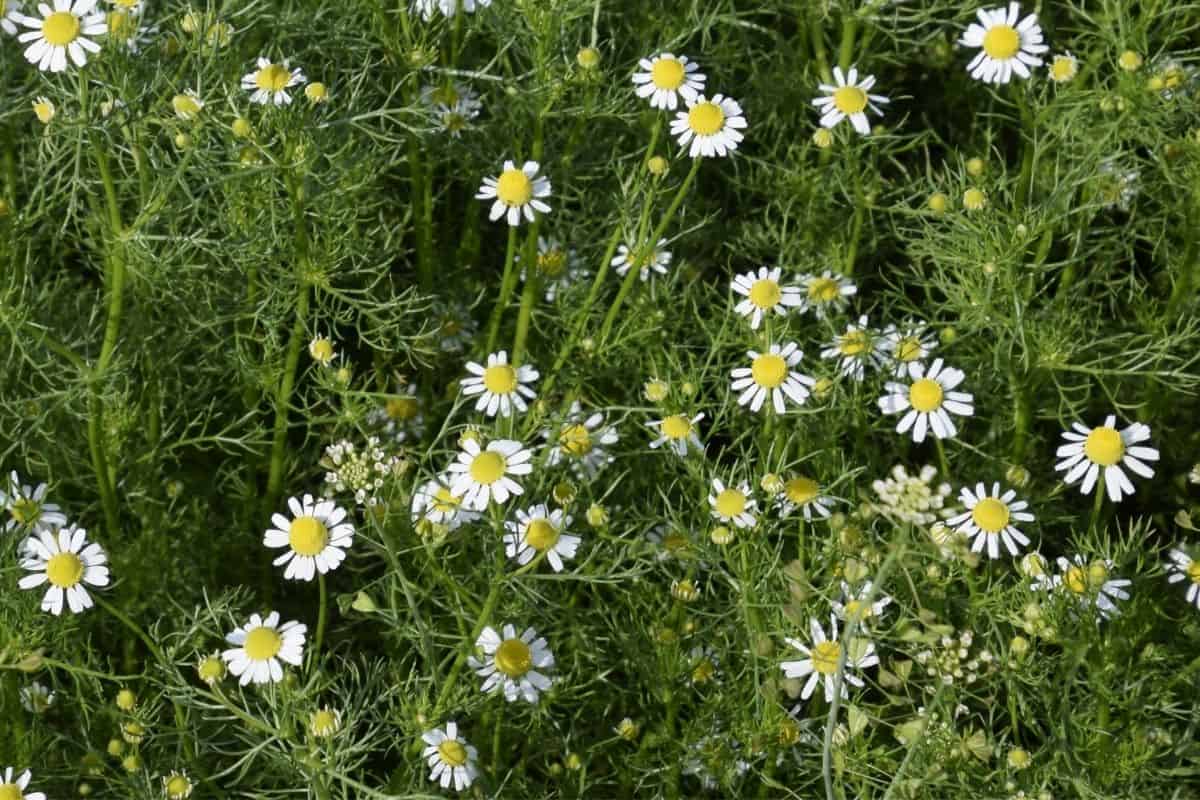
Chamomile has antifungal properties that help prevent fungal diseases in onions, which tend to be especially problematic in more humid areas. Additionally, chamomile flowers attract beneficial insects to the garden. Maybe this super herb should be at the top of the list!
5. Dill
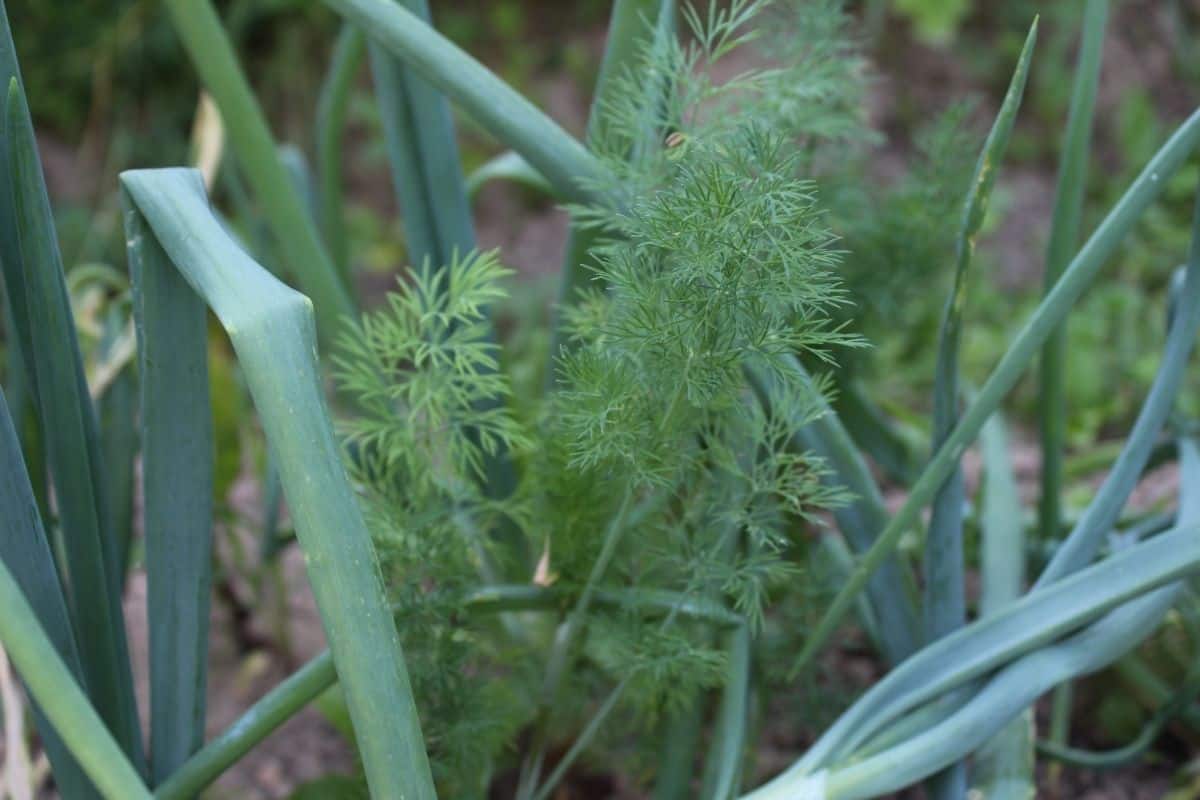
Like many flowering herbs, dill attracts beneficial insects that pollinate crops and prey on pests like aphids. Plus, dill can even improve the flavor of onions when planted alongside them.
6. Lettuce
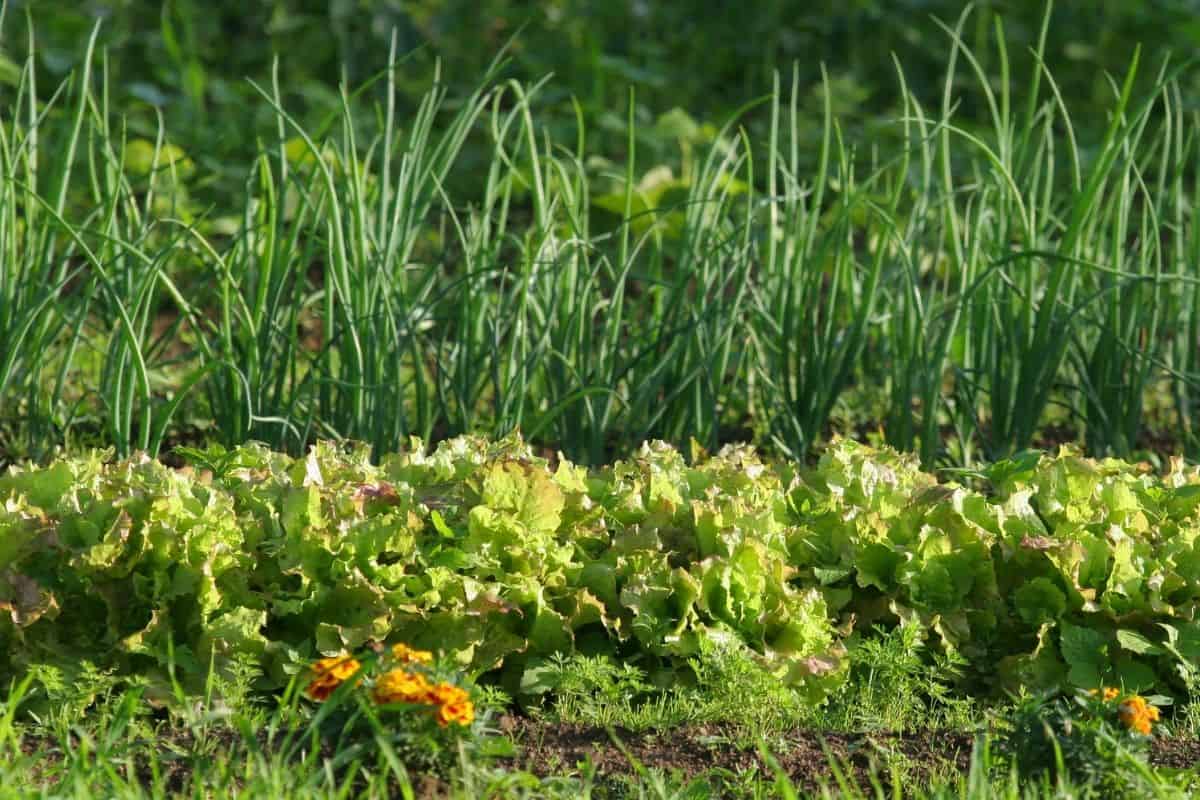
Planting onions with lettuce is an efficient use of space since lettuce has shallower roots and thus will not compete with onions for nutrients in the soil. Onions also repel pests that like to munch on lettuce, like aphids and flea beetles.
7. Melons
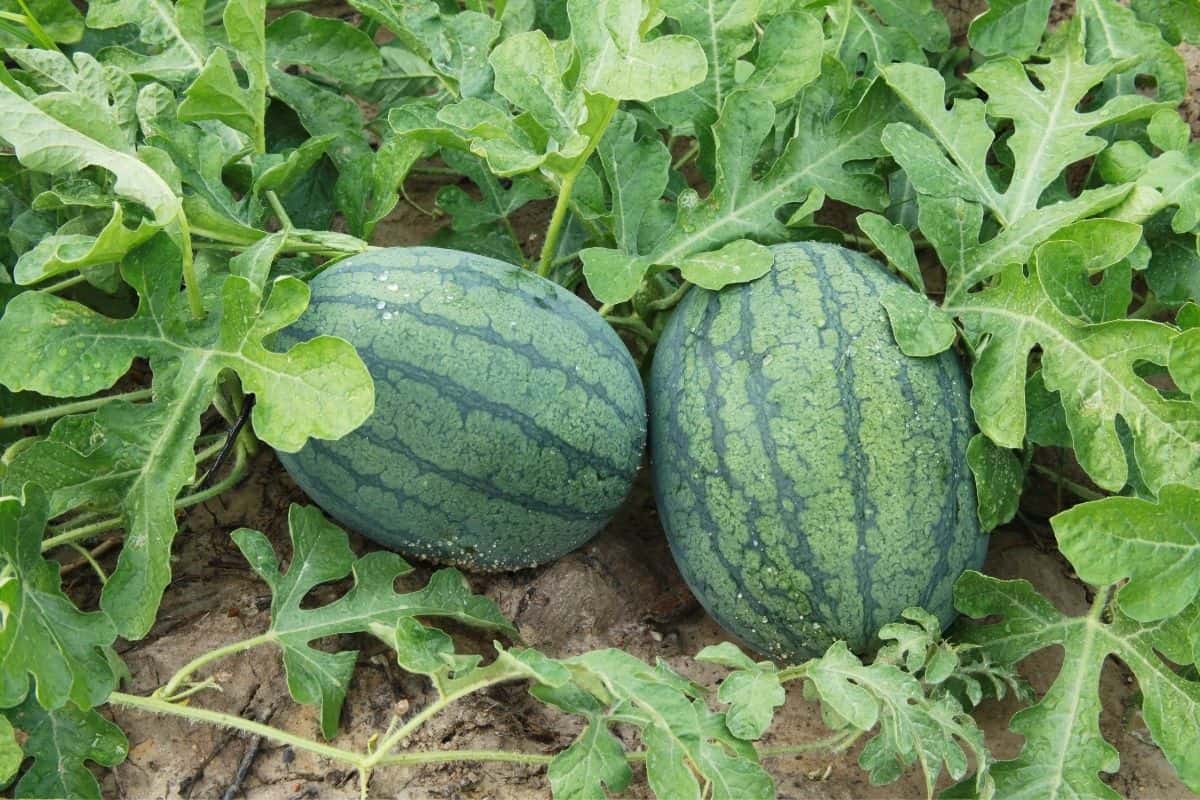
Onions deter pests that damage melons like cantaloupe, honeydew, and watermelon, so plant a few nearby to keep these fruit vines healthy.
8. Mint
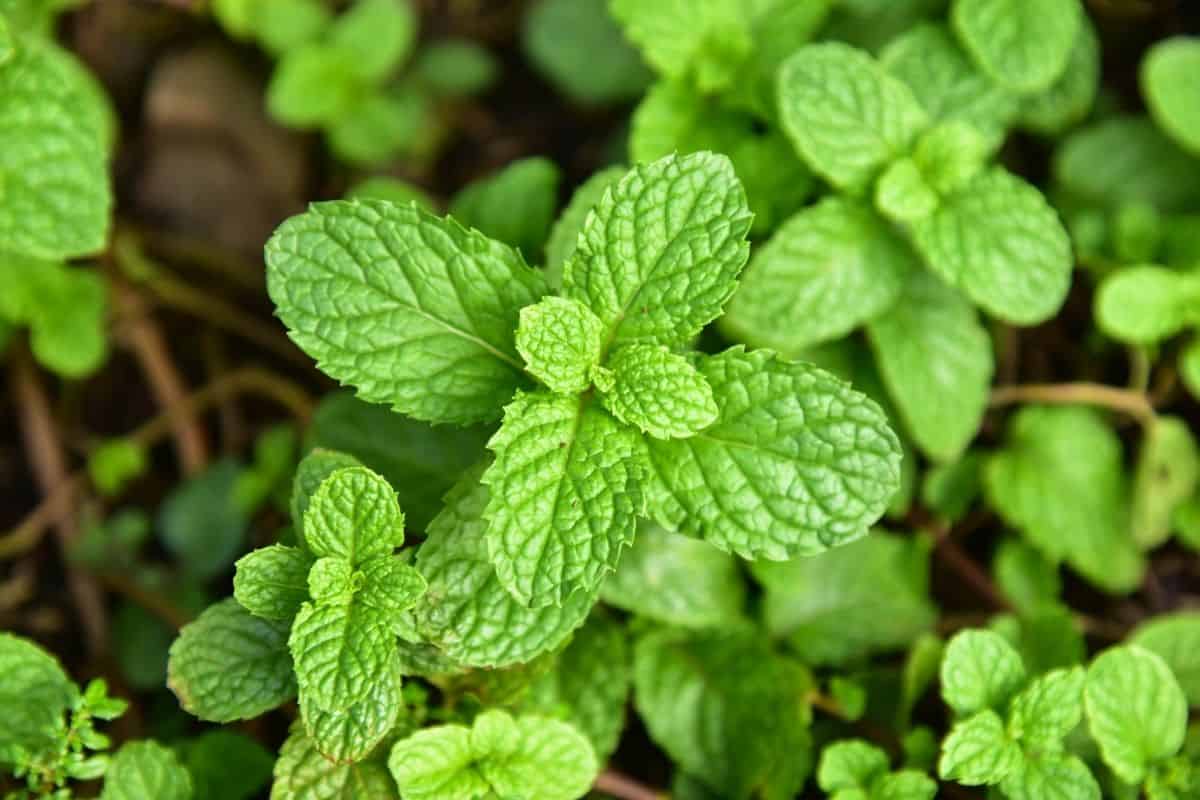
When grown together, mint can improve the flavor of onions, and mint flowers attract beneficial insects. Just remember that mint spreads aggressively, so plant onions with mint in a contained area (or a container) rather than planting mint in the vegetable garden.
9. Peppers
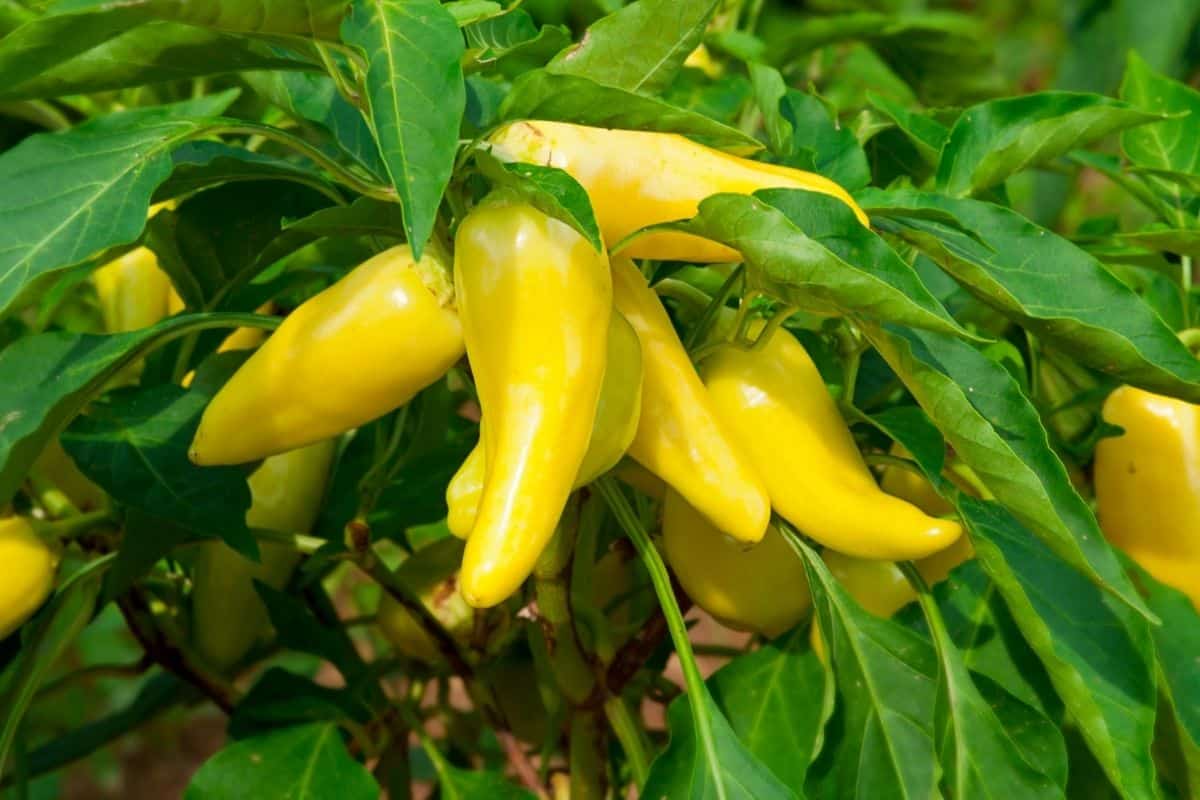
If you have problems with aphids or spider mites on your peppers every year, try interplanting onions with the peppers plants to deter the damaging insects.
10. Strawberries
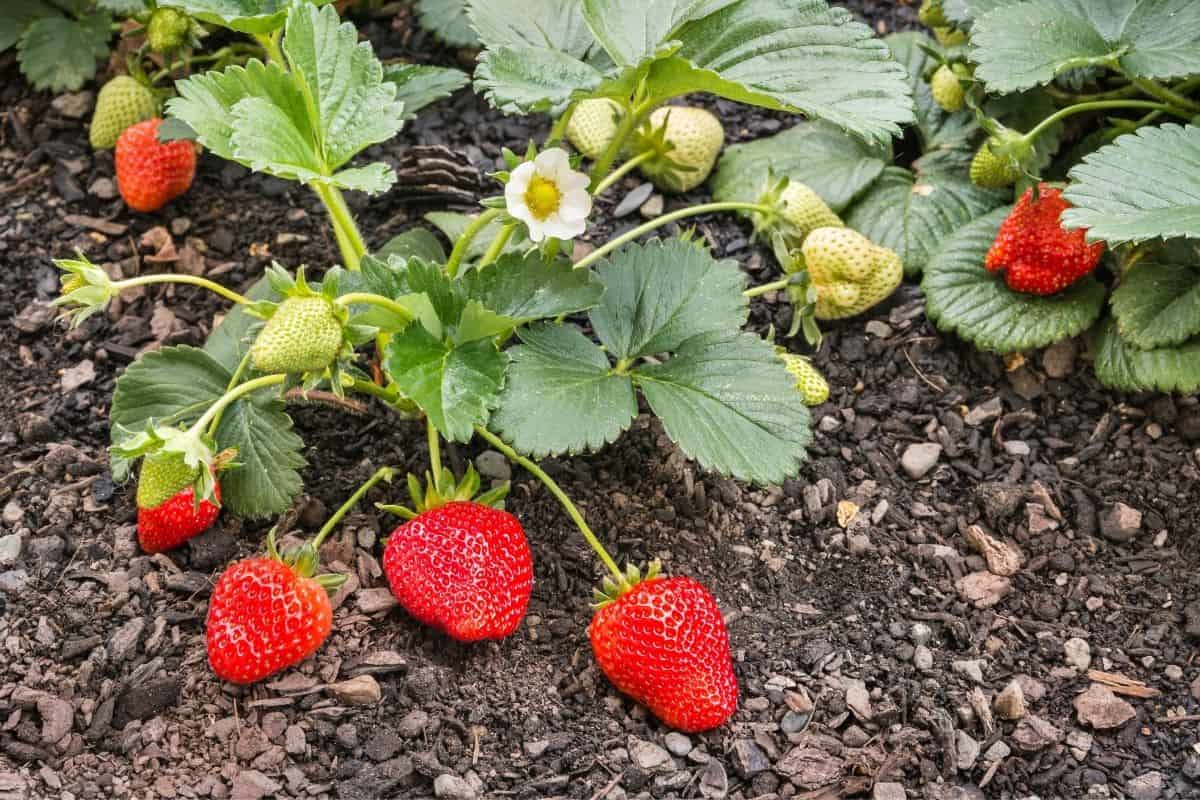
Onions can also keep aphids away from strawberries. These sweet little fruits are especially vulnerable to pests, so plant some onions among them to help level the playing field.
11. Summer savory
Another “super herb,” at least where onions are concerned, summer savory encourages strong growth in onions, attracts beneficial insects, and even makes onions taste sweeter.
12. Tomatoes
The pungent odor of onions deters some common tomato pests like aphids and spider mites. Plus, growing onions next to tomatoes can improve the flavor of the tomatoes.
Worst Companion Plants for Onions
While many plants benefit from having onions nearby, some do not get along well with onions. Here are a few plants that should not be grown near onions.
1. Alliums
Other members of the onion, or allium, family suffer from the same pests and diseases as onions. Keeping members of the allium family separate can help reduce the spread of disease and attract fewer pests. Similarly, avoid planting onions in the same area where alliums grew the previous season.
2. Asparagus
Onions and asparagus compete for the same soil nutrients, so growing them together can stunt one or both crops. This would be especially detrimental to young asparagus since this perennial takes several years to become established.
3. Legumes
Due to a chemical incompatibility, onions can stunt the growth of all beans (pole beans and bush beans), peas, and other legumes and should not be planted near them. However, legumes fix nitrogen in the soil, while onions are heavy nitrogen feeders, so it’s a great idea to practice crop rotation and follow a crop of legumes with a crop of onions.
4. Sage
While many herbs make great companions for onions, sage and onions prefer different growing conditions. Perhaps more importantly, though, sage can stunt the growth of onion plants.
Companion Planting Guides
If you’re serious about getting the most from your garden, you might want to buy some books about companion planting to use as guides: there’s a lot of garden wisdom in these guides. . Here are some of the more popular ones:
The Complete Guide to Companion Planting Everything You Need to Know to Make Your Garden Successful Revised 2nd Edition (Back to Basics) Companion Planting: A Complete Guide to Growing an Organic, Healthy and Rewarding Garden. Tips & Tricks for Beginners.
Companion Planting: A Complete Guide to Growing an Organic, Healthy and Rewarding Garden. Tips & Tricks for Beginners. Great Garden Companions: A Companion-Planting System for a Beautiful, Chemical-Free Vegetable Garden
Great Garden Companions: A Companion-Planting System for a Beautiful, Chemical-Free Vegetable Garden Plant Partners: Science-Based Companion Planting Strategies for the Vegetable Garden
Plant Partners: Science-Based Companion Planting Strategies for the Vegetable Garden Vegetables Love Flowers: Companion Planting for Beauty and Bounty
Vegetables Love Flowers: Companion Planting for Beauty and Bounty Carrots Love Tomatoes: Secrets of Companion Planting for Successful Gardening
Carrots Love Tomatoes: Secrets of Companion Planting for Successful Gardening
Companion planting offers a wealth of benefits to the vegetable garden, and onions are a wonderful multipurpose companion plant. When you interplant onions with the right vegetables, herbs, and fruits, you can improve your onion crop as well as the health of the companion plants: something organic gardeners love!
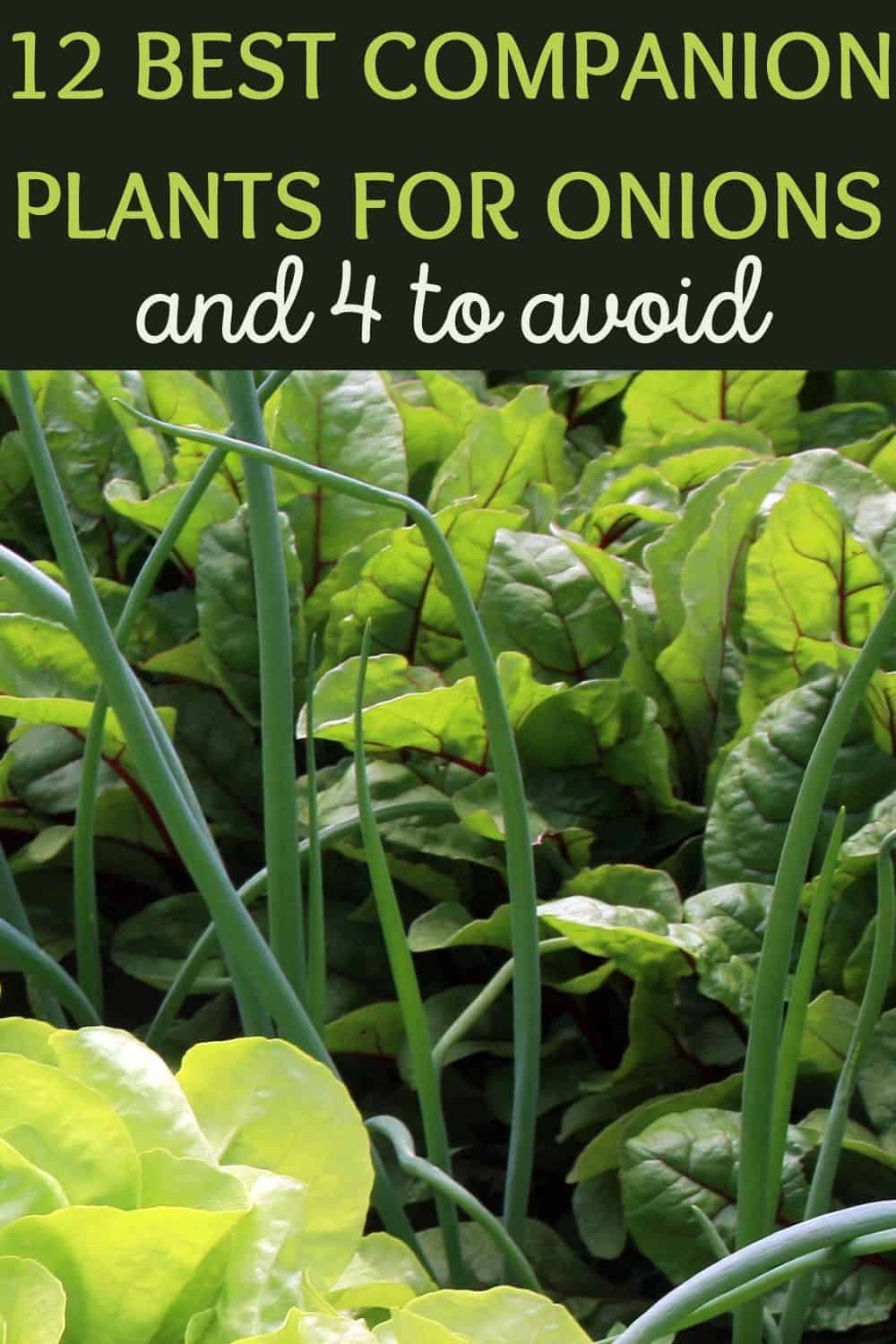

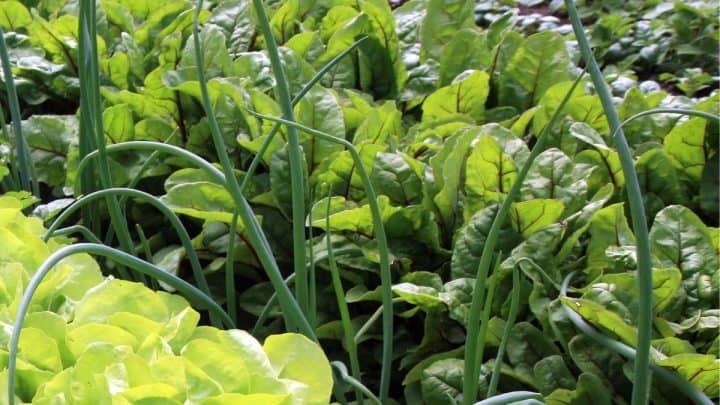









Companion Planting Guide (Including 7 Benefits Of Polyculture)
Monday 28th of March 2022
[…] Companion plants for onions […]